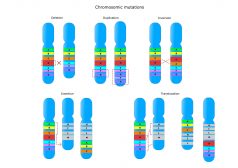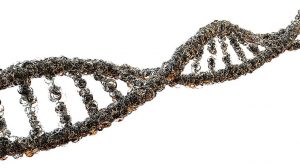Definition
noun, plural: deletion mutations
(genetics) A type of mutation wherein one or few nucleotide base pairs are deleted or lost from a chromosome especially during the replication of genetic material
Supplement
Mutation is a change in the nucleotide sequence of a gene or a chromosome. Based on the effect of mutation on the gene structure, mutations may be: (1) small-scale mutations or (2) large-scale mutations. Small-scale mutations are a type of mutation where one or few nucleotides of a gene are affected whereas large-scale mutations affect a large chromosomal region. A frameshift mutation is when there are indels (i.e. insertions or deletions) of a number of nucleotides in a DNA sequence that is not divisible by three.
Deletion mutations may therefore vary from small scale to large scale. A small-scale type of deletion mutation is one in which one or more nucleotides are lost or deleted from the chromosome (microdeletions). Large-scale deletion mutations are characterized by the loss of the genes in a large chromosomal region. Deletion mutations that occur towards the ends of a chromosome are referred to as terminal deletions.
Those that occur from the interior of the chromosome are called intercalary deletions.
Deletion mutations can occur due to losses from translocation, chromosomal crossovers within a chromosomal inversion, unequal crossing over, and breaking without rejoining.
Synonym(s):
- gene deletion
- gene deficiency
See also:



